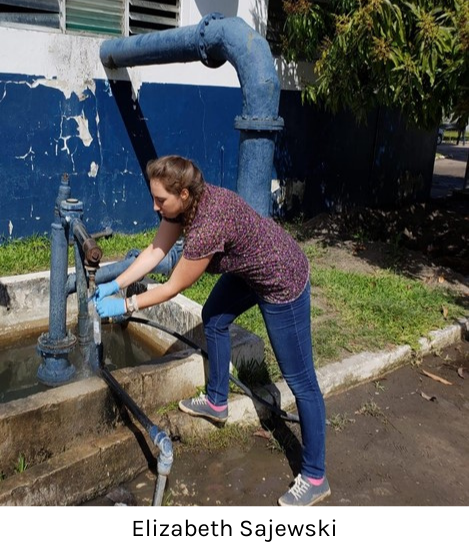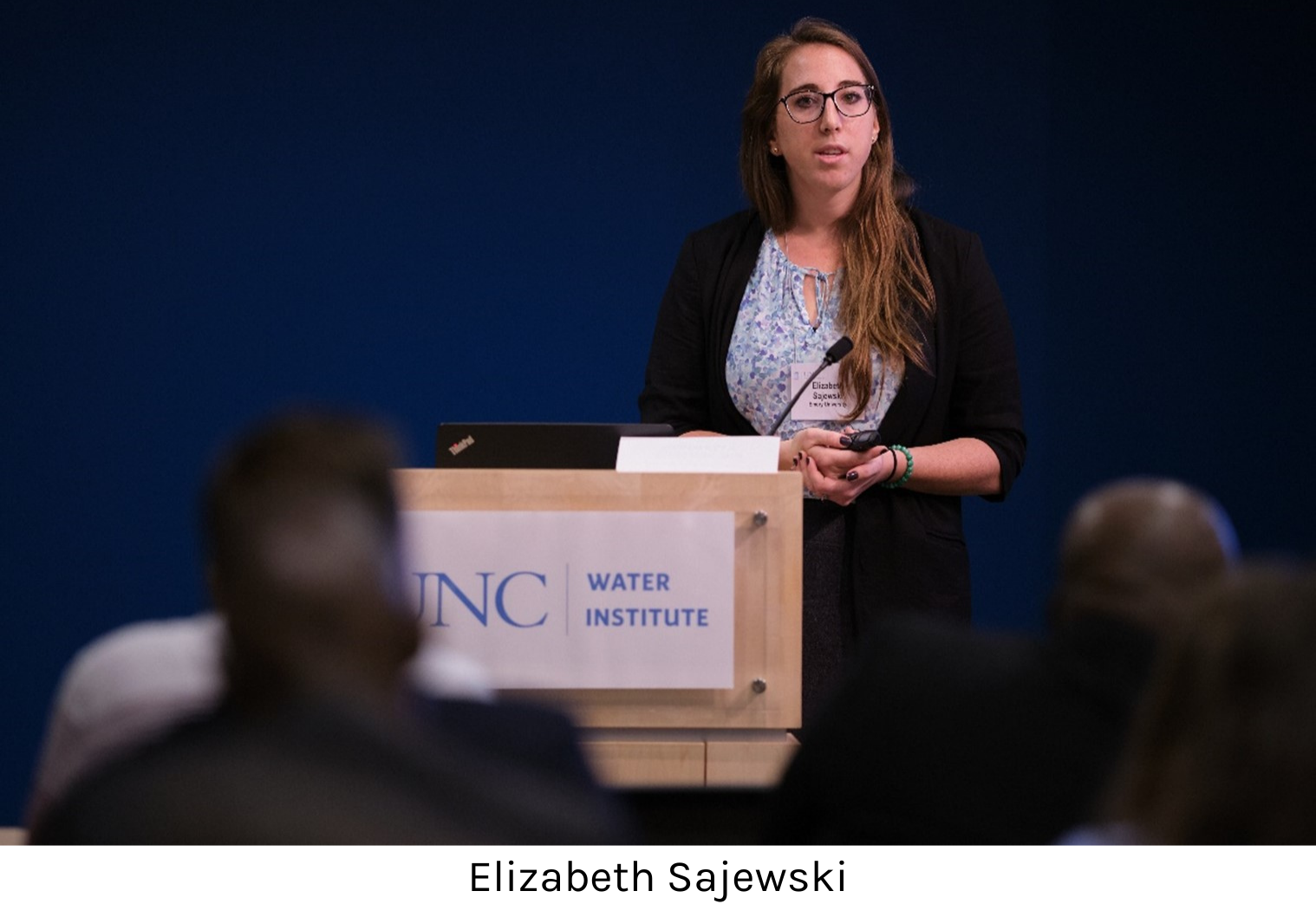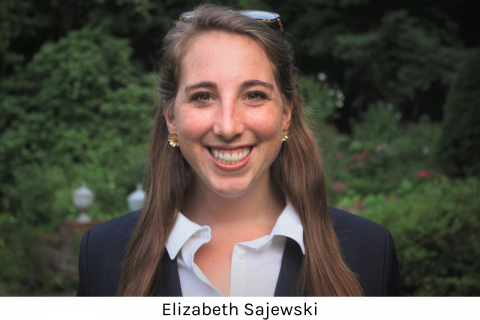Growing up exploring the outdoors, catching frogs, identifying plants and insects, ARCS Scholar Elizabeth Sajewski was fascinated by the world around her, and even more by how it all worked and fit together – solving puzzles in her own backyard. As a PhD candidate studying environmental health science at Emory University’s Rollins School of Public Health, she is still solving puzzles, now related to the environment, people, a different kind of bugs -- disease-causing pathogens -- and the key puzzle pieces needed to improve health for human populations across the globe.

Elizabeth’s research focuses on infectious diseases, investigating how pathogens move through populations and how the environment and public health interventions impact their transmission. She uses mathematical and spatial models to simulate the spread of pathogens like norovirus, responsible for the stomach flu, and SARS-CoV-2, the virus that causes COVID-19, and the changes caused by adjusting factors like contact rates between individuals or adding interventions like vaccination or clean water and sanitation. Her research has taken her to fieldwork in Mozambique and pulls on data from around the world, including China, Germany, Guatemala, and the United States.
Through her ARCS Scholar Award, Elizabeth has been able to advance her skills, share her research, and build academic networks by attending conferences and workshops around the country. In particular, she was able to spend two weeks at an infectious disease modeling workshop at the University of Washington last summer, learning new techniques and inspiring novel research questions. Her ARCS Scholar Award also supported travel to the Water and Health conference at UNC-Chapel Hill to present new methods for evaluating water and sanitation (WASH) interventions in an oral presentation, “Modeling WASH-Related Enteropathogens and Interventions: A Tool for Applying Empirical Data to Policy Decisions.”

Right now, we are in the midst of a global pandemic that has disrupted society in profound ways. The work public health scientists are doing to create models of SARS-COV-2 transmission allow them to investigate social distancing, testing, vaccination, and other intervention strategies. This is essential to better understand the pandemic and how we can best protect people.
In response to the COVID-19 pandemic, Elizabeth has refocused some of her research, adjusting the novel WASH-modeling methods she previous presented to explore the impact of COVID-19 interventions. In particular, she is focusing on essential workers in the farm and food packaging sectors, working with industry partners and using models to identify the best ways to keep workers safe. Elizabeth says of her work, “In a lot of ways, this is what I’ve been training for. Though I’ve mostly focused on water and sanitation and enteric pathogens, the skills I’m learning and models I’m building can be adapted to respond to different types of pathogens, like SARS-CoV-2. By developing novel models that work across scales, from environmental exposure to population-level transmission, I can create a clearer picture of how pathogens are moving and the key pathways to target to stop disease spread. I’m glad that my training and the flexibility of funding, like that from the ARCS Scholar Award, have allowed me to respond to this public health crisis and hopefully contribute to interventions that keep people safe.”
Going forward, Elizabeth hopes to continue to explore interesting and relevant questions about infectious diseases. She is eager to contribute to research which supports interventions and policy recommendations to improve the health of communities across different regions, income settings, and backgrounds and reduce the burden of diseases among the world’s most vulnerable populations.
Reflecting on her PhD experience, Elizabeth says “the ARCS Scholar Award has been instrumental to my graduate studies. Financially, it has been essential in broadening my opportunities and alleviating stress. The ARCS Scholar Award is also a consistent reminder of the support I have as a scientist, that people believe in me and believe in the importance of my research. And it makes it even better to share my successes with ARCS members, knowing that they have been supporting me through it all.”

